I hear and I forget. I see and I remember. I do and I understand.
Confucius
Leadership found me, not the other way round.
Not really, but sometimes it feels that way. Whatever the case, I wasn’t ready. As a young Boy Scout, not even in my teens, I found myself in a top leadership position that far outstripped my age and rank. I have no idea why, but I was charged with leading the entire troop.
An overstuffed backpack on a loooong uphill hike would be a welcome burden compared to the weight of all that responsibility. What should have been a fun boyhood adventure rapidly transformed into a brutal slog. I was burning out. With high school looming I simply up and quit—at the ripe old age of 13. Yeah, like I said, I was really young.
This situation would crop up time and again throughout my life—me finding myself in yet another leadership role, having to lead with my gut, rinse, repeat.
Over time, I started choosing to be a leader rather than having leadership thrust upon me, but one question kept nagging: did I really know what I was doing?
Confucius offers this insight on gaining wisdom:
By three methods we may learn wisdom: First, by reflection, which is noblest; Second, by imitation, which is easiest; and third, by experience, which is the bitterest.
Experiencing the Bitterest
My concerns about my leadership peaked when, as a faculty leader at a small university, I was asked to become the founding dean of its new School of Humanities and Social Sciences.
Suddenly, the stakes amped up considerably, and my gut leadership seemed woefully inadequate. By then, I had reflected on my leadership for years. I really had. But reflection alone, as Confucius notes, albeit the purest path to wisdom, is just one path.
Desperate for guidance, I looked to my superiors and my peers, hoping to glean wisdom through imitation, Confucius’ second and easiest method. It was soon evident, though, that my bosses and colleagues had spent even less time and effort honing their leadership than I had. Their inadequacies were glaring, and I was adrift once again with no guides, models, or mentors to help me navigate my new role.
That’s when it hit me! Leadership isn’t just some job title or a role to play. It’s a discipline to be studied, experimented with, and refined.
I jumped right into to this new mindset, reading articles and books, attending workshops, and earning certifications. Soon I had new models to imitate and adapt and I wove this new leadership thread—imitation and study—together with my previous reflection in hope that it would suffice.
But Confucius is right that there are three paths to wisdom, and I came to realize that we must follow all three: reflection and imitation, yes, but also experience. Experience, Confucius warned, is the bitterest teacher of all, for it is only in the doing—with all its setbacks, disappointments, and defeats—that we can fully understand the way to true wisdom. So, prepared with my new knowledge and a lifetime of reflection, I set about putting theory into practice.
The lessons were too many to recount, but they were powerful as I blundered through my role as a dean. Every misstep, every misinterpretation, and every bit of luck, good or bad, contributed to my understanding. I even discovered the power of learning from the mistakes of others as I pursued that third wisdom.
Importantly, I found my previous experience could contribute much to my growing understanding of leadership. For instance, I had served decades as a full-time classroom teacher, so I combined that background with my new reality as an academic administrator to conclude that every leadership challenge is a teaching challenge in disguise.
The skills and strategies I honed as a professor—communicating with clarity, breaking down complex ideas into digestible parts, inspiring and motivating, and so on—were precisely the tools I needed to lead my school effectively. That sort of insight, borne of the fusion of theory and practice, demonstrates the power of pursuing all three paths to wisdom, what I have come to call "the third wisdom."
Which is not to say that I’m done. As far as I have journeyed, I don’t pretend to have completed the path to leadership wisdom or anything close. Indeed, such a claim from anyone would be inherently false and absurdly self-defeating.
For with growing wisdom comes the profound understanding that the journey of leadership is never complete. That there is no one and done. That acing the quiz, nailing the exam, and earning the degree are, at best, just moments on an endless road of growth and self-improvement. That my current knowledge will be nothing compared to what I will come to understand in the future. That success is fleeting and resting never an option. That this singular milestone is followed by another and another.
So, fellow traveler, welcome to our ceaseless trek.
What Is Wisdom?
But first, what is wisdom?
The science fiction author Arthur C. Clarke observed:
It is vital to remember that information—in the sense of raw data—is not knowledge, that knowledge is not wisdom, and that wisdom is not foresight. But information is the first essential step to all of these.
Here Clarke lays out the elements of the learning process. First (and critically) is acquiring information, then coming to understand that information (what Clarke imprecisely calls “knowledge”), and finally wisdom and foresight.
Wisdom is the culmination of all one’s experience filtered through the lens of good judgment and ethical reasoning, which is why the older you get, the more likely you are to gain wisdom although there are no guarantees. Wisdom is discernment and its application. The wisest among us can see both the immediate consequences of our actions and how they will ripple far into the future. They can synthesize disparate elements of their experience, learning, and reflection into a cohesive whole to guide their choices and behaviors in their drive toward the greater good.
The Three Wisdoms
The three paths toward wisdom as outlined by Confucius—reflection, imitation, and experience—are not three separate trails but intertwined routes on a steep slope. To follow one fully you must pursue the others. Still we often encounter self-appointed authorities and gurus who claim advanced wisdom yet lack at least one of these crucial elements—usually experience. Although they eloquently talk the talk, their ability to guide is limited.
My own leadership journey is a great illustration of the flaw of relying solely on reflection and imitation. It wasn’t until I applied what I had learned, until I had felt the subsequent jolt of failure and the rush of success, that my leadership philosophy began to take shape. Moreover and frustratingly, there is no universal rule book, no matter how many self-styled gurus try to sell you one.
As with any skill, gurus and teachers can guide our development and can even help us reflect, but only by trodding that third, bitterest path—the one with all the zigs as well as the zags—can our true leadership practice form. And gaining wisdom through experience means embracing the whole venture, savoring the sweet and the bitter both while understanding that absent the bitter—What a gift!—the sweet can never be quite as sweet. That’s where we find true wisdom.
As you travel on your leadership journey, remember that I can merely offer lessons I’ve gleaned from my own experiences and observations. For you, my (or anyone else’s) hard-won insights can only nudge you along, providing a broad, unmarked map, not GPS, to navigate the unknown territory that is your future. You’ll have plenty of opportunity for reflection, and you can learn much through imitation. But it’s only through the doing that you can move toward your own understanding.
Your Foundation: Human Decency
One universal truth I have discovered through my years of study and practice is that wise leaders all build upon a foundation of human decency. You can certainly come to understand and value this base through reflection and imitation, but it’s only through experience that you’ll truly grasp its power and practicality. After all, if you’re not leading from a grounding in human decency, what foundation are you building upon exactly?
Ultimately, you’ll have to discover your own path forward. Start with your commitment to human decency, but only the culmination of your own character, choices, reflections, observations, studies, and experiences will shape a leadership philosophy and wisdom that is entirely your own. It’s an ongoing journey with no clear final destination, which is why it’s so challenging and rewarding—so bitter and sweet.
Pursuing full wisdom is like trying to crest the ever-receding horizon. You move forward but never reach it, the pursuit itself being the point. But I hope by sharing my experience and insights—as necessarily limited as they may be—I can serve as a guide on your journey of exploration, discovery, and growth. Then together, through our mutual commitment to leading with wisdom and human decency, we can begin to change the world—one leader at a time.
How have you pursued leadership wisdom? Have you consciously sought to combine all three paths to wisdom?
Great leaders need guidance as they pursue the third wisdom, and I can help.
Unlock the Great Leader Within! Download my free resource, the Transform To GREATness Toolkit, now!
I look forward to hearing from you.
Intro and outro podcast theme music by LiteSaturation from Pixabay.
Check out these pages to invite me speak at your event or appear on your podcast:
Check out Speaker’s Page
Check out Podcast Guest Page





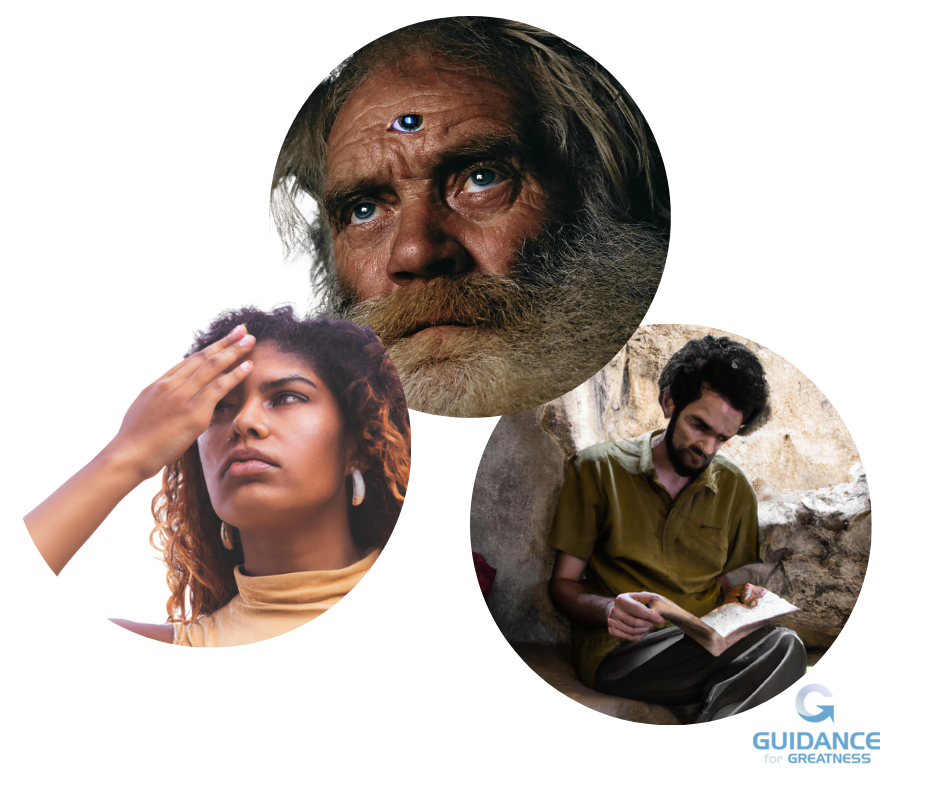

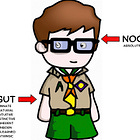

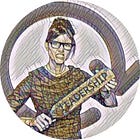

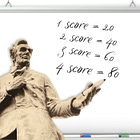

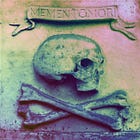










Share this post